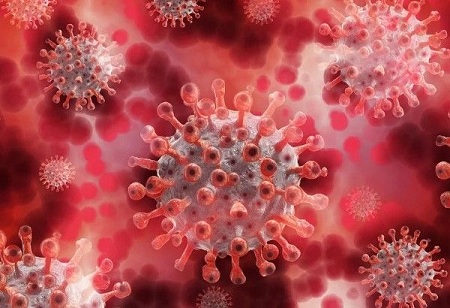One of the most promising
biotechinnovations in cancer treatment is immunotherapy. Immunotherapy is a type of cancer treatment that works by harnessing the power of the immune system to fight cancer cells. The immune system is the body's natural defence against disease, and it works by identifying and destroying abnormal cells, including cancer cells. However, cancer cells are often able to evade detection by the immune system, allowing them to grow and spread. Immunotherapy works by stimulating the immune system to recognize and attack cancer cells, effectively removing the "cloak" that allows cancer cells to evade detection. One of the best examples of immunotherapy in action is the drug pembrolizumab, also known as Keytruda. Keytruda is a type of immunotherapy known as a checkpoint inhibitor, which works by blocking a protein called PD-1 that cancer cells use to evade the immune system. By blocking PD-1, Keytruda allows the immune system to recognize and attack cancer cells, effectively slowing or stopping the growth of the tumour.
Personalised cancer vaccines
Keytruda has been approved by the U.S. Food and Drug Administration (FDA) for the treatment of several different types of cancer, including melanoma, lung cancer, and head and neck cancer. In clinical trials, Keytruda has been shown to be highly effective in treating these cancers, with many patients experiencing a significant reduction in tumour size and improved survival rates.Another promising biotech innovation in cancer treatment is gene therapy. Gene therapy works by altering the genes inside a patient's cells to treat or prevent disease. In cancer treatment, gene therapy can be used to modify the genes inside cancer cells, making them more susceptible to treatment or even killing them outright.One of the most exciting examples of gene therapy in cancer treatment is CAR T-cell therapy. CAR T-cell therapy involves taking immune cells from a patient's body, modifying them in a laboratory to produce chimerical antigen receptors (CARs) that can recognize and attack cancer cells, and then reintroducing the modified cells back into the patient's body. Once inside the body, the modified immune cells are able to target and destroy cancer cells, effectively removing the tumour.“By making all stages of the process more efficient, the AI can reduce the number of scans required, and also the dosage of radiation the patient is subjected to. As we all know, speed is essential in cancer treatment, so by speeding up the analysis process and getting valuable insights to clinicians sooner, diagnoses can be made sooner and more accurately, and lives saved..†Says Evomics’ CEO, Dr Shiwei Wang.
Cancer therapy has been transformed by car t cells.
CAR T-cell therapy has shown remarkable success in treating certain types of blood cancers, including leukaemia and lymphoma. In clinical trials, CAR T-cell therapy has been shown to be highly effective in treating these cancers, with many patients experiencing complete remission of the disease.One of the biggest advantages of CAR-T cell therapy is that it has shown remarkable success in treating certain types of cancer. For example, a study published in the New England Journal of Medicine showed that CAR-T cell therapy was effective in treating patients with relapsed or refractory acute lymphoblastic leukemia (ALL). The study found that 83% of patients who received CAR-T cell therapy had a complete remission of their cancer.CAR-T cell therapy has also shown promise in treating other types of cancer, such as lymphoma. A study published in the Journal of Clinical Oncology found that CAR-T cell therapy was effective in treating patients with relapsed or refractory diffuse large B-cell lymphoma (DLBCL). The study found that 52% of patients who received CAR-T cell therapy had a complete response to the treatment.In addition to immunotherapy and gene therapy, biotechnology is also being used to develop new diagnostic tools for cancer. One of the most promising new diagnostic tools is liquid biopsy, which involves analyzing a patient's blood for signs of cancer. Liquid biopsy works by detecting fragments of DNA that are released by cancer cells into the bloodstream, allowing doctors to identify the presence of cancer and monitor its progression.Overall,
biotechnology is revolutionizing the fight against cancer by offering new and innovative solutions for prevention, diagnosis, and treatment. Biotechnology is revolutionizing the fight against cancer. CAR-T cell therapy is a personalized treatment that involves engineering T-cells to recognize and attack cancer cells. The therapy has shown remarkable success in treating certain types of cancer, such as leukemia and lymphoma. However, the therapy is not without its challenges, including high costs and potential side effects.
